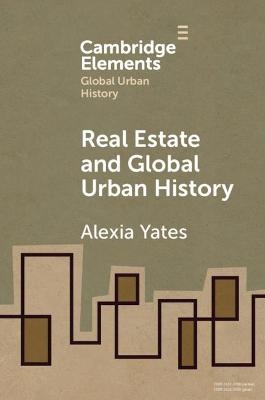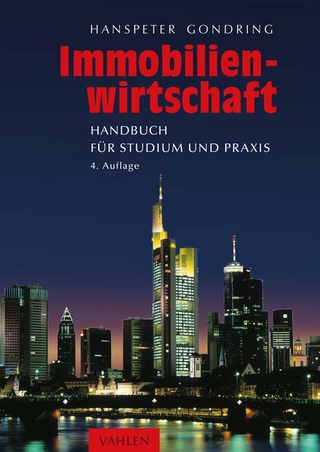
Real Estate and Global Urban History
Seiten
2021
Cambridge University Press (Verlag)
978-1-108-79711-5 (ISBN)
Cambridge University Press (Verlag)
978-1-108-79711-5 (ISBN)
This Element examines the modern city as a propertied space, defining real estate as a technology of possession and using it to move across scales of analysis, from the local spatiality of particular built spaces to the networks of legal, political, and economic imperatives that constitute property and operate at national and international levels.
Capitalist private property in land and buildings – real estate – is the ground of modern cities, materially, politically, and economically. It is foundational to their development and core to much theoretical work on the urban environment. It is also a central, pressing matter of political contestation in contemporary cities. Yet it remains largely without a history. This Element examines the modern city as a propertied space, defining real estate as a technology of (dis)possession and using it to move across scales of analysis, from the local spatiality of particular built spaces to the networks of legal, political, and economic imperatives that constitute property and operate at national and international levels. This combination of territorial embeddedness with more wide-ranging institutional relationships charts a route to an urban history that allows the city to speak as a global agent and artefact without dispensing with the role of states and local circumstance.
Capitalist private property in land and buildings – real estate – is the ground of modern cities, materially, politically, and economically. It is foundational to their development and core to much theoretical work on the urban environment. It is also a central, pressing matter of political contestation in contemporary cities. Yet it remains largely without a history. This Element examines the modern city as a propertied space, defining real estate as a technology of (dis)possession and using it to move across scales of analysis, from the local spatiality of particular built spaces to the networks of legal, political, and economic imperatives that constitute property and operate at national and international levels. This combination of territorial embeddedness with more wide-ranging institutional relationships charts a route to an urban history that allows the city to speak as a global agent and artefact without dispensing with the role of states and local circumstance.
1. Introduction: The Case for Real Estate; 2. Real Estate and the Historiography of the City; 3. Urban Theory, Through the Real Estate Lens; 4. The Fleeting and the Fixed Global Urban Histories of Markets and Land; 5. Conclusion; 6. References.
| Erscheinungsdatum | 16.08.2021 |
|---|---|
| Reihe/Serie | Elements in Global Urban History |
| Zusatzinfo | Worked examples or Exercises |
| Verlagsort | Cambridge |
| Sprache | englisch |
| Maße | 150 x 230 mm |
| Gewicht | 140 g |
| Themenwelt | Naturwissenschaften ► Geowissenschaften ► Geografie / Kartografie |
| Wirtschaft ► Betriebswirtschaft / Management ► Rechnungswesen / Bilanzen | |
| Betriebswirtschaft / Management ► Spezielle Betriebswirtschaftslehre ► Immobilienwirtschaft | |
| Wirtschaft ► Volkswirtschaftslehre | |
| ISBN-10 | 1-108-79711-3 / 1108797113 |
| ISBN-13 | 978-1-108-79711-5 / 9781108797115 |
| Zustand | Neuware |
| Haben Sie eine Frage zum Produkt? |
Mehr entdecken
aus dem Bereich
aus dem Bereich
Erfolgsstrategien für den modernen Immobilienmarkt
Buch | Softcover (2024)
ForwardVerlag
18,00 €
Handbuch für Studium und Praxis
Buch | Hardcover (2023)
Vahlen (Verlag)
79,00 €
warum Rene Benkos Immobilienimperium zusammenbrach und was dem …
Buch | Hardcover (2024)
FinanzBuch Verlag
22,00 €


